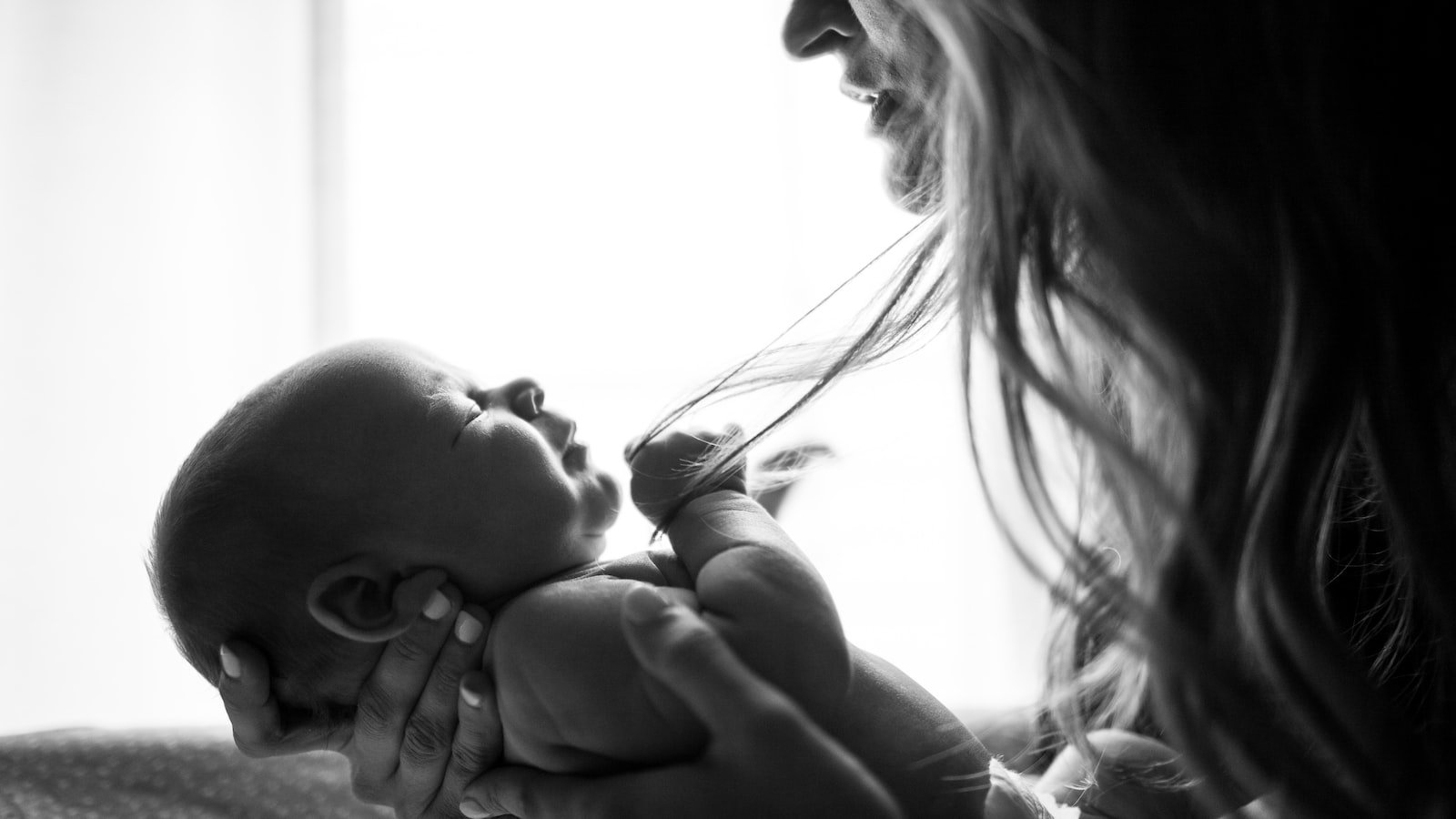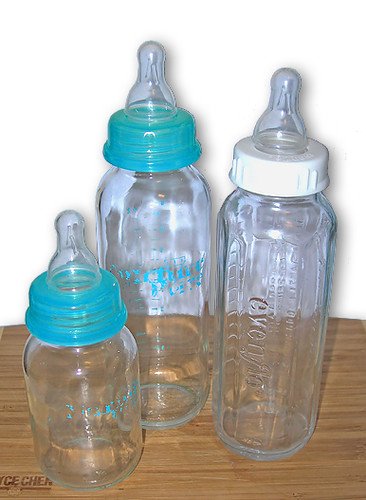If you thought doing laundry for a family of four was an uphill task, then wait till you find yourself knee-deep in a never-ending pile of baby bottles. From fueling their growing bodies to nourishing their insatiable appetites, baby bottles are an indispensable part of every parent’s arsenal. However, keeping these tiny vessels squeaky clean is a whole new level of challenge. Don’t fret, though, as we have got you covered with foolproof tips and tricks to clean and sterilize baby bottles like a pro. Bid farewell to lurking germs and embrace a germ-free bottle-feeding experience that will keep your little one healthy and happy.
Table of Contents
- Gentle Precautions for Cleaning Baby Bottles
- Effective Cleaning Methods for Baby Bottles
- Essential Steps to Sterilize Baby Bottles
- Choosing the Right Cleaning Products for Baby Bottles
- Maintaining Hygiene: Best Practices for Baby Bottle Cleaning
- Q&A
- The Way Forward

Gentle Precautions for Cleaning Baby Bottles
Creating a safe and clean environment for your little one is of utmost importance, especially when it comes to their feeding bottles.
When it comes to cleaning your baby’s bottles, taking gentle precautions ensures both hygiene and longevity. Here are some essential tips to consider:
- Separate parts: Before cleaning, always disassemble the bottle and detach the nipple, collar, and any additional parts. This will enable you to access all the nooks and crannies during the cleaning process, ensuring no residue or bacteria are left behind.
- Hand wash with care: Opt for gentle dish soap and warm water when hand washing your baby’s bottles. Avoid using harsh chemicals or abrasive scrub brushes, as they can damage the bottles or leave behind harmful residues. Instead, use a soft bottle brush to clean the inside thoroughly, paying extra attention to the hard-to-reach areas.
- Boiling method: To sterilize the bottles, consider boiling them for a few minutes. This method effectively eliminates bacteria and ensures maximum cleanliness. However, ensure that the bottles are made of materials suitable for boiling and follow the manufacturer’s instructions to prevent any damage.
- Drying thoroughly: After cleaning, it’s crucial to let the bottles air-dry completely to avoid bacterial growth. Place the disassembled parts and bottles on a clean drying rack or a tray lined with a clean cloth. Avoid using towels as they can harbor germs.
By following these gentle precautions, you can maintain a sanitary environment for your baby while keeping their bottles in excellent condition. Remember, cleanliness plays a vital role in their well-being and overall growth.

Effective Cleaning Methods for Baby Bottles
Cleaning baby bottles effectively is essential for your baby’s health and well-being. As a parent, it’s crucial to ensure that the bottles your little one uses are free from any harmful bacteria or germs. Here are some tried and tested methods for effectively cleaning baby bottles:
- 1. Handwashing: Start by rinsing the bottle and its components with warm water to remove any leftover milk or formula. Then, using a bottle brush, scrub the inside and outside of the bottle, the nipple, and the cap with mild dish soap. Rinse all parts thoroughly to ensure no soap residue remains.
- 2. Sterilizing: Sterilization helps kill any remaining bacteria. There are various methods you can choose from, such as boiling, steam sterilization, or using a sterilizing solution. Always follow the manufacturer’s instructions for your chosen method.
- 3. Drying: After cleaning and sterilizing, allow the baby bottles and their components to air dry completely. Alternatively, you can use a clean, lint-free cloth to dry them gently.
Remember, maintaining cleanliness in baby bottle usage is crucial for your baby’s health. Be sure to clean and sterilize the bottles regularly, especially when your baby is sick. By following these effective cleaning methods, you can provide your little one with a safe and healthy feeding experience.

Essential Steps to Sterilize Baby Bottles
Ensuring the utmost cleanliness of your baby’s feeding equipment is of paramount importance for their health and well-being. Here, we present to you the effectively:
- Step 1: Preparing the Bottles: Before sterilization, disassemble the bottles, removing the nipples, rings, and caps. Rinse each component thoroughly with warm, soapy water to eliminate any residue.
- Step 2: Boiling Method: Place all the disassembled bottle components into a large pot filled with water. Boil the items for at least five minutes to kill any harmful bacteria and germs. Remember to ensure there is enough water to keep all the items fully submerged. Carefully remove the sterilized items with tongs and place them on a clean, dry surface.
- Step 3: Steam Sterilization: Another effective method is using a steam sterilizer. Load the cleaned bottle components into the sterilizer and follow the manufacturer’s instructions. Usually, this involves adding water to the sterilizer, setting the appropriate time, and allowing the steam to thoroughly sterilize the items. Once completed, remove the sterilized items carefully and let them cool before use.
By following these essential steps, you can provide your baby with a safe and hygienic bottle-feeding experience while giving yourself peace of mind. Remember, cleanliness is key when it comes to your little one’s health!
Choosing the Right Cleaning Products for Baby Bottles
When it comes to keeping your baby’s bottles squeaky clean, choosing the right cleaning products is essential. You want something that is gentle yet effective, ensuring that your little one’s feeding equipment is free from harmful bacteria. Here are some tips to help you choose the best cleaning products for baby bottles:
- Prioritize safety: Look for products that are free from harsh chemicals and toxins. Opting for natural or organic cleaning solutions can give you peace of mind that no harmful substances will come in contact with your baby’s bottles.
- Consider convenience: Managing a baby’s needs can be challenging, so choosing a cleaning product that makes your life easier is a bonus. Look for options that are easy to use, whether it’s a convenient spray or a dishwasher-safe cleaning tool.
- Effectiveness is key: While safety and convenience are important, you also want a cleaning product that gets the job done. Select formulas that specifically target milk residue and stubborn stains, ensuring your baby’s bottles are thoroughly sanitized.
By choosing the right cleaning products, you can provide a clean and healthy environment for your little one’s feeding routine. Remember to always follow the manufacturer’s instructions and thoroughly rinse the bottles after each cleaning session. With the right products, you can be confident that your baby is getting their milk or formula from spotless bottles!
Maintaining Hygiene: Best Practices for Baby Bottle Cleaning
When it comes to maintaining hygiene for your baby, proper cleaning of their bottles is essential. By following these best practices for baby bottle cleaning, you can ensure that your little one stays healthy and happy:
1. Wash Bottles Thoroughly
After each use, wash your baby’s bottles carefully with warm soapy water. Use a bottle brush to reach all the nooks and crannies, including the nipples and the inside of the cap. Rinse the bottles well, ensuring no soap residue remains.
2. Sterilize Bottles Regularly
Even though washing is crucial, it’s vital to sterilize your baby’s bottles regularly to eliminate any harmful bacteria. You have several options to do this:
- Boiling: Submerge the bottles in a pot of boiling water for at least 5 minutes, ensuring they are completely covered.
- Steam Sterilizer: Use an electric steam sterilizer, which effectively kills bacteria without harsh chemicals.
- Microwave Sterilizer: Follow the manufacturer’s instructions to use a microwave sterilizer, providing a quick and efficient way to sanitize bottles.
3. Air Dry Bottles
After washing and sterilizing, it’s important to let the bottles air dry. Place them upside down on a clean towel or bottle rack, ensuring all parts drain completely. Avoid using cloth towels, as they can harbor bacteria.
By adhering to these best practices, you can significantly reduce the risk of your baby being exposed to harmful germs and keep their bottles impeccably clean.
Q&A
Q: Why is it important to clean and sterilize baby bottles?
A: Cleaning and sterilizing baby bottles is crucial to ensure your baby’s health and safety. It helps eliminate harmful bacteria, preventing potential illnesses and infections.
Q: How often should I clean and sterilize my baby bottles?
A: It is recommended to thoroughly clean and sterilize baby bottles after every single use. This ensures that any remaining milk residue or bacteria is eliminated, promoting a hygienic environment for your baby.
Q: What is the best way to clean baby bottles?
A: The most efficient way to clean baby bottles is by using hot, soapy water. Gently scrub the bottles, nipples, and caps with a bottle brush, paying extra attention to any crevices. Rinse them thoroughly with clean water afterward.
Q: How can I sterilize baby bottles?
A: There are several methods to sterilize baby bottles. You can boil them in a pot of water for approximately five minutes or use a steam sterilizer. Alternatively, you can sanitize them in the dishwasher, selecting the highest heat and sterilization option.
Q: Can I use bleach or harsh chemicals to clean baby bottles?
A: No, it is not recommended to use bleach or harsh chemicals on baby bottles. These substances may leave behind harmful residues that could be ingested by your baby. Stick to mild dish soap and hot water for cleaning.
Q: How should I store sterilized baby bottles?
A: Once the baby bottles are sterilized, let them air dry on a clean drying rack or clean cloth. Once dry, store them in a clean and covered container to protect them from dust, insects, and other contaminants.
Q: Should I sterilize baby bottles that are brand new?
A: It is advisable to sterilize brand new baby bottles before the first use. Even though they might appear clean, they can still contain manufacturing residues or other contaminants that could be harmful to your baby.
Q: How often do I need to replace baby bottles?
A: Baby bottles should be regularly inspected for signs of wear and tear. If you notice any cracks, scratches, or changes in material quality, it is time to replace them. Additionally, nipple sizes should be adjusted as your baby grows.
The Way Forward
As we bid farewell, let us remember that a clean and sterile environment fosters a healthy beginning for your little one. By implementing these simple yet effective steps, you can confidently conquer the task of cleaning and sterilizing baby bottles, ensuring that every sip is a pure delight for your bundle of joy. Remember, cleanliness is not just a chore but a vital aspect of nurturing your baby’s well-being. So, embrace this step-by-step journey with open arms, cherishing the moments of simplicity and care that will leave a lasting impression on your baby’s health. And as you embark on this path, may you find solace in knowing that by keeping their bottles clean, you are laying the foundation for a lifetime of happiness and well-being. So go forth, dear parents, armed with knowledge and armed with love, as you embark on this quest of cleanliness and sterilization. Your baby’s health depends on it, and with every squeaky-clean bottle, you’re nurturing their growth, one adorable sip at a time. Let us bid adieu, till we meet again, united in our endeavor to provide the utmost care for our precious ones.
As an affiliate, my content may feature links to products I personally use and recommend. By taking action, like subscribing or making a purchase, you’ll be supporting my work and fueling my taco cravings at the same time. Win-win, right?
Want to read more? Check out our Affiliate Disclosure page.